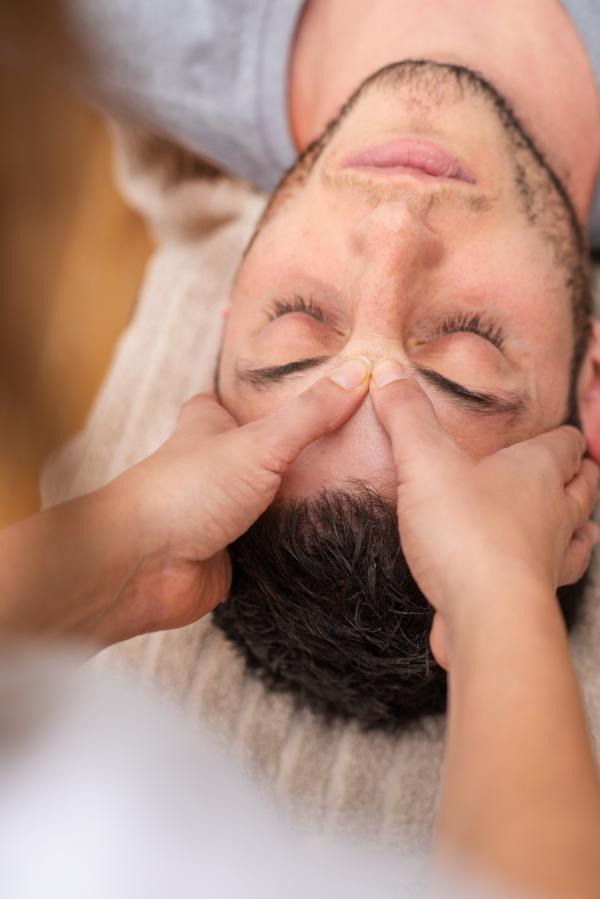
Adrenal fatigue is a term most often used to describe a variety of chronic tiredness symptoms, which can affect hormone production of the adrenal glands.
It’s important to note, adrenal fatigue is not a medical diagnosis. It is a term commonly applied to a collection of symptoms, including fatigue, poor sleep quality, body aches, nervousness, high levels of stress and digestive issues.
Adrenal glands are responsible for producing a variety of essential hormones. With adrenal fatigue covering a wide range of possible signs and symptoms, it’s important to seek advice from a qualified health professional to determine the best course of treatment.
Causes of adrenal fatigue
Adrenal fatigue is often caused by high levels of stress, including physical, psychological and emotional.
When undergoing a stressful period, your adrenal glands enter a state known as “homeostasis”, in which your adrenal glands attempt to correct the increased levels of stress. If your adrenal glands are forced to sustain this state for too long, or if they are subjected to extreme shock, their overall output of adrenal hormones will be reduced due to overstimulation.
As well as stress, there are a number of other factors that can result in adrenal fatigue. These include:
-
Alcoholism and addiction
-
Autoimmune disease
-
Burnout
-
Chronic fatigue syndrome
-
Low immunity
-
Dental health
-
Herpes
-
Hypoglycaemia
Common signs of adrenal fatigue
There can be many symptoms you may experience if you have adrenal fatigue, and these may vary from person to person.
One of the most common signs of adrenal fatigue is excessive tiredness, sporadic energy and an inability to cope with stress.
Some people may find they are tired without cause, and even if they had a full night’s sleep, may struggle to get out of bed in the morning. People suffering from adrenal fatigue may tend to have more energy and be more alert in the evening rather than during the day.
An inability to cope with stress, or struggle to recover from stress or illness can also be potential signs of adrenal fatigue.
Another common sign can be craving foods high in salt or sugar.
Adrenal fatigue includes a wide variety of possible signs and symptoms such as:
-
Fatigue
-
Body aches
-
Low blood pressure
-
Feeling light-headed
-
Loss of body hair
-
Skin discolouration (hyperpigmentation)
Many of these symptoms can also be indications of other health problems, so it’s important to make a doctor’s appointment if you experience these for an ongoing period.
Treatment for adrenal fatigue
If you’re experiencing signs of adrenal fatigue, your doctor will ask about your symptoms and may run blood tests and special stimulation tests to determine if you have inadequate levels of adrenal hormones and rule out other possible health issues.
Your health practitioner can provide a treatment plan according to your specific needs and give you recommendations for a diet plan. This treatment plan may involve a variety of techniques to help cope with your symptoms while restoring your adrenal glands to their natural function.
One of the recommended natural treatments for combatting adrenal fatigue is following a proper diet. Eating an early breakfast and having a light snack before bed can help combat early morning fatigue. A diet high in protein, complex carbohydrates and some fats throughout the day, can help keep your energy levels steady. Avoid foods containing a lot of sugar and over-processed ingredients.
As well as improving your diet, you may want to try various supplements and vitamins aimed at fighting adrenal fatigue. Though always be cautious when using any supplements that are unregulated and check with your doctor before taking them, in case they are harmful to you or may react with other medication you’re taking.
Recommended treatments may also include quitting alcohol, drugs, caffeine and cigarettes, and increasing exercise and getting more sleep.
Recovery from adrenal fatigue can take anywhere from three months to two years. This will vary for each individual. Often a healthy lifestyle can help relieve fatigue. This involves getting enough sleep, engaging in more relaxing activities to relieve stress, reducing alcohol consumption and engaging in regular physical activity. Make sure to always follow any recommended treatment from your doctor.
Getting the right advice
If you’re experiencing unexplained fatigue and exhaustion, or any other symptoms that may suggest you’re suffering adrenal fatigue, it’s important to get qualified advice from a doctor to ensure you receive a safe treatment plan.
Some of the signs and symptoms of adrenal fatigue can also be the same as other conditions, so making an appointment to get checked by your doctor can help rule out more serious health problems.

